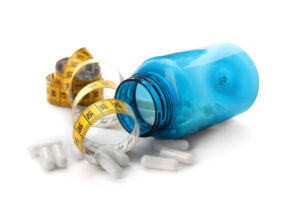Choosing to take medication to manage your anxiety can be difficult, especially when you’re faced with a long list of available options. Even choosing between well-known medications like Zoloft and Prozac can be a significant challenge.
Both Prozac and Zoloft are selective serotonin reuptake inhibitors (SSRIs), which prevent neurons from reabsorbing serotonin, thereby increasing levels of available serotonin in the brain. These medications are commonly prescribed to treat anxiety and panic disorders due to their ability to regulate serotonin levels, promoting a sense of calm and reducing symptoms. However, Zoloft is more suitable for the treatment of social anxiety.
Though Prozac and Zoloft are very similar, they have key differences, including medication interactions, that may make one a better choice than the other for each individual. In this article, we will compare Prozac and Zoloft so that you can have an informed discussion with your healthcare provider about which one could be right for you and your symptoms.
If you suspect you have an anxiety disorder, find a provider on Klarity today for affordable online anxiety treatment. Your provider can diagnose your symptoms and create a personalized treatment plan for anxiety, including prescription SSRIs. With Klarity, you can receive comprehensive, insurance-free anxiety treatment in as little as 48 hours.
| Zoloft | Prozac | |
|---|---|---|
| Drug Class | Selective serotonin reuptake inhibitor (SSRI) | Selective serotonin reuptake inhibitor (SSRI) |
| Brand / Generic Status | Brand name for sertraline | Brand name fluoxetine |
| Form(s) of the Drug | • Clear, peppermint-flavored liquid suspension • Color-coded tablets |
• Clear, peppermint-flavored liquid suspension • Half-green, half-white capsules |
| Standard Dosage | Liquid suspension • 20 mg of sertraline per dose Standard tablet dosages: • Green indicates 25 mg • Blue indicates 50 mg • Pinkish-red indicates 100 mg |
Liquid suspension: • 10mg per dose Capsules: • 10mg per dose |
| Conditions Treated | FDA-approved uses: • Major depression • Obsessive-compulsive disorder (OCD) • Panic disorder • Post-traumatic stress (PTS) • Premenstrual dysphoric disorder (PMDD) • Social anxiety disorder Off-label uses: • Autism (mood stabilizing) • Alcoholism • Eating disorders • Diabetic neuropathy • Dementia • Hot flashes • Generalized anxiety disorder (GAD) • Fibromyalgia • Migraines • Personality disorders • Tourette syndrome • Premature ejaculation |
FDA-approved uses: • Anxiety and stress • Major depression • Bulimia nervosa • Premenstrual dysphoric disorder (PMDD) • Obsessive-compulsive disorder (OCD) • Panic disorder • Postpartum depression • Schizoaffective disorder Off-label uses: • Anorexia nervosa • Premature ejaculation • Various anxiety disorders |
| Cost | Generic form (sertraline): • $4 to $25 for 30 days’ worth Brand-name: • $215 to $315 for a 30-day supply |
Generic form (fluoxetine): • $3 to $4 for 30-days’ worth of capsules* • $12 for 30 days’ worth of liquid suspension *May cost up to $100 for high dosages Brand-name: • $460 to $1000 for 30 days’ worth of capsules |
| Side-Effects | Common side effects: • Nausea or indigestion • Diarrhea or loose stool • Tremors or twitching • Decreased appetite and weight loss • Bruising and muscle aches • Decreased libido/trouble orgasming • Excessive sweating • Anxiety Serious side effects: • Heart arrhythmia • Bleeding and liver injury • Confusion and seizures • Suicidal thoughts • Changes in behavior • Serotonin syndrome |
Common side effects: • Nausea • Diarrhea or constipation • Changes in appetite • Headache and fatigue • Increased sweating • Trouble sleeping • Impotence/sexual dysfunction Serious side effects include: • Fever • High blood pressure • Rigid muscles • Seizures • Kidney or respiratory failure • Disorientation or delirium • Serotonin syndrome |
| Warnings For Use | Contraindicated conditions: • Pregnancy or breastfeeding • Liver problems • Epilepsy and seizure disorders • Glaucoma • Bipolar disorder • Thyroid disease Drug interactions: • Monoamine oxidase inhibitors (MAOIs) • Blood thinners • Antipsychotic and antiseizure medications • Alcohol—recreational and alcohol-based medications |
Contraindicated conditions: • Diabetes • Liver disease • Alcohol use disorder • History of bipolar disorder • History of suicide attempts • Low blood sodium or dehydration • Seizures • Gastrointestinal ulcers • Glaucoma Drug Interactions: • Monoamine oxidase inhibitors (MAOIs) • Nonsteroidal anti-inflammatory drugs (NSAIDs) • Aspirin and other blood thinners • Antihistamines • Opioid pain relievers • St. John’s wort • Cannabis and MDMA |
What Is Zoloft?
Zoloft is the brand name for the medication sertraline. It’s an SSRI FDA-approved to treat depression in adults, and OCD in children and adolescents. Both the brand name and generic formula are available via prescription.
Zoloft is also prescribed off-label to treat a number of conditions that can result from a serotonin imbalance. This can be a preferable option for some, as It has less potential to cause drowsiness than other antidepressants.
Zoloft Forms and Doses
Healthcare providers may prescribe Zoloft in two forms: tablets or liquid solution. The solution is typically given to children aged 6 to 12, while tablets are given to adolescents and adults aged 13 and older.
Each dose of the liquid solution contains 20 mg of sertraline. It’s a clear, peppermint-flavored suspension that must be properly diluted before it’s administered. Each dose of the liquid solution contains 20 mg of sertraline. Dilution instructions come with each 60 ml bottle.
Tablets are oblong, scored down the center, and stamped with the dosage amount. Dosages are also color-coded as follows:
- Green indicates 25 mg
- Blue indicates 50 mg
- Pinkish-red indicates 100 mg
Children 6 to 12 are usually prescribed a starting dose of 25 mg, while adults are prescribed 50 mg. Patients of all ages may increase their dosage 25 mg at a time, up to 200 mg, to maintain the effectiveness of the medication.
Conditions Zoloft Treats
Zoloft can be prescribed in both on-label and off-label capacities. On-label indicates that it’s been FDA-approved to treat those specific conditions. Off-label means that, while the drug may be effective in treating symptoms, it’s not specifically approved by the FDA to do so. It’s up to your healthcare provider to determine which medication will work best to treat your symptoms.
Zoloft is FDA-approved to treat the following conditions:
- Major depression
- Obsessive-compulsive disorder (OCD)
- Panic disorder
- Post-traumatic stress (PTS)
- Premenstrual dysphoric disorder (PMDD)
- Social anxiety disorder
Symptoms of Anxiety Zoloft Can Treat
Zoloft is often prescribed off-label as an effective treatment for generalized anxiety disorder (GAD) and on-label for related conditions like social anxiety and panic disorder.
It’s been shown to alleviate the following symptoms of these disorders:
- Unwanted or intrusive thoughts
- Intense fear
- Panic attacks
- Chronic feelings of anxiety
Symptoms of Depression Zoloft Can Treat
When prescribed as an antidepressant, Zoloft can help improve many symptoms, including:
- Depressed, irritable, or fluctuating moods
- Disturbed sleep
- Irregular appetite cycles
- Low energy levels
- Disinterest in daily life
Off-Label Uses For Zoloft
Zoloft is often prescribed off-label to treat the following conditions:
- Autism (mood stabilizing)
- Alcoholism
- Eating disorders
- Diabetic neuropathy
- Dementia
- Hot flashes
- Generalized anxiety disorder (GAD)
- Fibromyalgia
- Migraines
- Personality disorders
- Tourette syndrome
- Premature ejaculation
Zoloft Costs
Brand-name Zoloft can cost between $215 and $315 for a 30-day supply. Many insurances don’t cover the brand name because of these high prices.
Fortunately, sertraline—Zoloft’s generic counterpart—is much more affordable and covered by Medicare and many major insurance companies. Depending on the dosage, a 30-day supply costs between $4.00 and $25.
Zoloft Side Effects
Each person will experience side effects differently. You should always contact your healthcare provider if any of these side effects worsen or are ongoing.
Common side effects of Zoloft include:
- Nausea or indigestion
- Diarrhea or loose stool
- Tremors or twitching
- Decreased appetite and weight loss
- Bruising and muscle aches
- Decreased libido/trouble orgasming
- Excessive sweating
- Anxiety
Rarer but more serious side effects include:
- Heart arrhythmia
- Bleeding and liver injury
- Confusion and seizures
- Suicidal thoughts
- Changes in behavior
SSRIs may also cause serotonin syndrome, a condition caused by too much serotonin in the body. Symptoms include diarrhea, confusion, seizures, and rapid heart rate. If left untreated serotonin syndrome can have serious adverse effects.
Contact your health care provider immediately if you experience any severe side effects.
Zoloft Warnings For Use
Zoloft should be taken exactly as prescribed and you should not stop taking it unless your healthcare provider has instructed you to do so in order to avoid withdrawal symptoms. If you experience depression and have sudden changes in mood or behavior or increased thoughts of suicide, contact your healthcare provider immediately.
Those with the following conditions or circumstances should avoid taking Zoloft:
- Pregnancy or breastfeeding
- Liver problems
- Epilepsy and seizure disorders
- Glaucoma
- Bipolar disorder
- Thyroid disease
Zoloft Drug Interactions
Zoloft interacts with 646 drugs, with 152 of those being major interactions, 488 moderate interactions, and 6 minor. Major interactions include drugs like Adderall, tramadol, and trazodone. Tell your healthcare provider about any other medications you’re taking before you begin using Zoloft to avoid negative side effects.
The following medications and substances may have adverse interactions with Zoloft:
- Monoamine oxidase inhibitors (MAOIs)
- Blood thinners
- Antipsychotic and antiseizure medications
- Alcohol—recreational and alcohol-based medications
What Is Prozac?
Prozac is the brand name for the medication fluoxetine. It’s an SSRI FDA-approved to treat depression in adults and children eight years or older. It’s also approved to treat OCD in adults and children seven years or older.
Both the brand name and generic formula are available via prescription. Neither form is approved for treating children under 7. It’s also prescribed on and off-label to treat various conditions resulting from low serotonin.
Prozac Forms and Doses
Healthcare providers may prescribe Prozac as a capsule or liquid suspension. Each capsule contains a 20 mg dose of the medication. They’re smooth, oblong pills that are half white and half green. The liquid is a mint-flavored suspension that can be measured in 10 mg doses. It’s usually prescribed for children under 13 years of age.
Adult patients usually take 20 mg daily, gradually increasing the amount to between 60 mg and 80 mg, depending on their condition. Children may start with 10 mg or 20 mg daily and gradually raise the dosage to 60 mg if needed.
Conditions Prozac Treats
Prozac has been FDA-approved to treat the following conditions:
- Anxiety and stress
- Major depression
- Bulimia nervosa
- Premenstrual dysphoric disorder (PMDD)
- Obsessive-compulsive disorder (OCD)
- Panic disorder
- Postpartum depression
- Schizoaffective disorder
Symptoms of Anxiety Prozac Can Treat
Individuals taking Prozac for anxiety most frequently experience relief from the following symptoms:
- Fear
- Chronic anxiety
- Intrusive or unwanted thoughts
- Frequent panic attacks
Symptoms of Depression Prozac Can Treat
Those taking Prozac for depression often experience relief from the following symptoms:
- Irritable, listless, or fluctuating moods
- Disturbed sleep
- Irregular appetite
- Low energy levels
- Disinterest in daily life
Off-Label Uses For Prozac
Prozac can be prescribed off-label to treat:
- Anorexia nervosa
- Premature ejaculation
- Various anxiety disorders
Prozac Costs
Depending on the dosage, brand-name Prozac can cost between $460 and nearly $1000 for a 30-day supply. Many insurances don’t cover the brand-name product because it’s too expensive.
However, fluoxetine—Prozac’s generic name—is much less expensive. Medicare and many major insurance companies cover it. On average, a 30-day supply of capsules costs between $3 and $4, while the solution costs around $12. Fluoxetine tablets may cost up to $100 for those requiring a high dosage.
Prozac Side Effects
Side effects look different for everyone, so it’s important to monitor how you’re feeling once you begin taking Prozac.
Common side effects of Prozac include:
- Nausea
- Diarrhea or constipation
- Changes in appetite
- Headache and fatigue
- Increased sweating
- Trouble sleeping
- Impotence/sexual dysfunction
Rarer but more serious side effects include:
- Fever
- High blood pressure
- Rigid muscles
- Seizures
- Kidney or respiratory failure
- Disorientation or delirium
Like Zoloft, Prozac may also cause serotonin syndrome and you should contact your healthcare provider immediately if you experience symptoms like insomnia, confusion, increased heart rate, high blood pressure, dilated pupils, or muscle rigidity.
Prozac Warnings For Use
Those with the following conditions should avoid taking Prozac:
- Diabetes
- Liver disease
- Alcohol use disorder
- History of bipolar disorder
- History of suicide attempts
- Low blood sodium or dehydration
- Seizures
- Gastrointestinal ulcers
- Glaucoma
Prozac Drug Interactions
Prozac interacts with 657 drugs, with 158 major interactions, 478 moderate interactions, and 21 minor interactions. Major interactions occur with Adderall, trazodone, and Wellbutrin XL. The following medications and substances are contraindicated for use with Prozac:
- Monoamine oxidase inhibitors (MAOIs)
- Nonsteroidal anti-inflammatory drugs (NSAIDs)
- Aspirin and other blood thinners
- Antihistamines
- Opioid pain relievers
- St. John’s wort
- Cannabis and MDMA
- Alcohol—recreational and alcohol-based medications
Licensed providers on Klarity provide personalized treatment. Find a provider that matches your needs and preferences.
Frequently Asked Questions About Prozac and Zoloft
Does Zoloft Make You Gain Weight? Does Prozac?
Most SSRIs—including Zoloft and Prozac—can contribute to weight gain. Those who lack appetite due to a serotonin imbalance may gain weight on Zoloft or Prozac because they eat more regularly.
These medications may also cause shifts in metabolism while your body adapts to them. Some individuals find the weight gain tapers off after several months.
Is Zoloft or Prozac Better for Anxiety?
Both medications are FDA-approved to treat anxiety-related conditions, such as panic disorder. Which is better for you largely depends on potential contraindications from other drugs or medical conditions. Additionally, individual body and brain chemistry affect how well these medications work.
It’s also worth noting that Zoloft is FDA-approved for social anxiety, while Prozac is approved for general anxiety.
Can I Replace Zoloft with Prozac?
Most medical practitioners agree that—under medical supervision—it’s safe to switch from one SSRI to another using either the cross-taper or direct switch method.
With the cross taper method, you’ll gradually decrease the Zoloft while simultaneously starting a low dose of Prozac. You’ll then continue reducing the Zoloft and increasing the Prozac until you’re only taking Prozac.
With the direct switch method, you simply stop taking the Zoloft and begin taking a low dose of Prozac immediately. Since the medications are similar, the chances of experiencing withdrawal are low.
Is Zoloft Energizing or Sedating? What About Prozac?
Though SSRI drugs affect everyone differently, Prozac and Zoloft have a reputation for increasing individuals’ energy levels. Prozac is reportedly more energizing than Zoloft, and some patients may experience drowsiness on either medication.
Does Zoloft Cause Brain Fog? Does Prozac?
Both Zoloft and Prozac can cause brain fog, though Zoloft seems to cause it more often than Prozac. Though SSRIs increase the serotonin available in the brain, they reduce the number of firing neurotransmitters. This process can make your thoughts feel hazy and make concentrating difficult.
Can I Drink Alcohol On Prozac? On Zoloft?
It’s not safe to drink alcohol when taking either Prozac or Zoloft. Alcohol amplifies the effects of SSRI drugs, which can cause dizziness, sudden fatigue, and other symptoms of serotonin syndrome. Drinking while taking SSRIs may also worsen symptoms of depression or cause suicidal thoughts.
Can I Drink Caffeine When I’m on Prozac? How About Zoloft?
It’s considered safe to mix caffeine with SSRI medications, including Prozac and Zoloft. However, caffeine raises the amount of serotonin and serotonin receptors in the brain, so your consumption should be fairly limited to reduce the risk of developing serotonin syndrome.
What Is Better For Depression—Prozac or Zoloft?
Which medication is right for you depends on several factors, including:
- Medical history
- Other medications and supplements
- Coinciding conditions (anxiety, OCD, etc.)
- Body chemistry
These factors help determine the best option since they’re both approved to treat various types of depression.
Finding the right antidepressant can sometimes take a little experimentation due to personal body chemistry. Some people react better to different medications than others. Your best option is to speak to a qualified healthcare professional.
How Klarity Helps You Discover the Right Medication
Klarity is your one-stop care center for anxiety and depression evaluation and treatment, and healthcare providers on our platform are qualified to confirm your diagnosis, recommend a treatment plan, and prescribe an appropriate medication. Plus, telehealth options are available in your state, so you can get the care you need when you need it.
If you’re still unsure which medication is right for you, get treatment with a licensed healthcare professional through Klarity today.
Sources:
https://psychologenie.com/most-energizing-antidepressant
https://www.webmd.com/drugs/2/drug-6997/prozac-oral/details
https://walrus.com/questions/switching-from-zoloft-sertraline-to-prozac-fluoxetine
https://www.medicalnewstoday.com/articles/325684
https://www.drugs.com/compare/prozac-vs-zoloft
https://www.rxlist.com/prozac-drug.htm#overdosage
https://www.healthline.com/health/depression/prozac-zoloft
https://www.rxlist.com/zoloft-drug.htm#description
https://www.webmd.com/drugs/2/drug-35/zoloft-oral/details
https://www.mayoclinic.org/diseases-conditions/depression/in-depth/ssris/art-20044825







